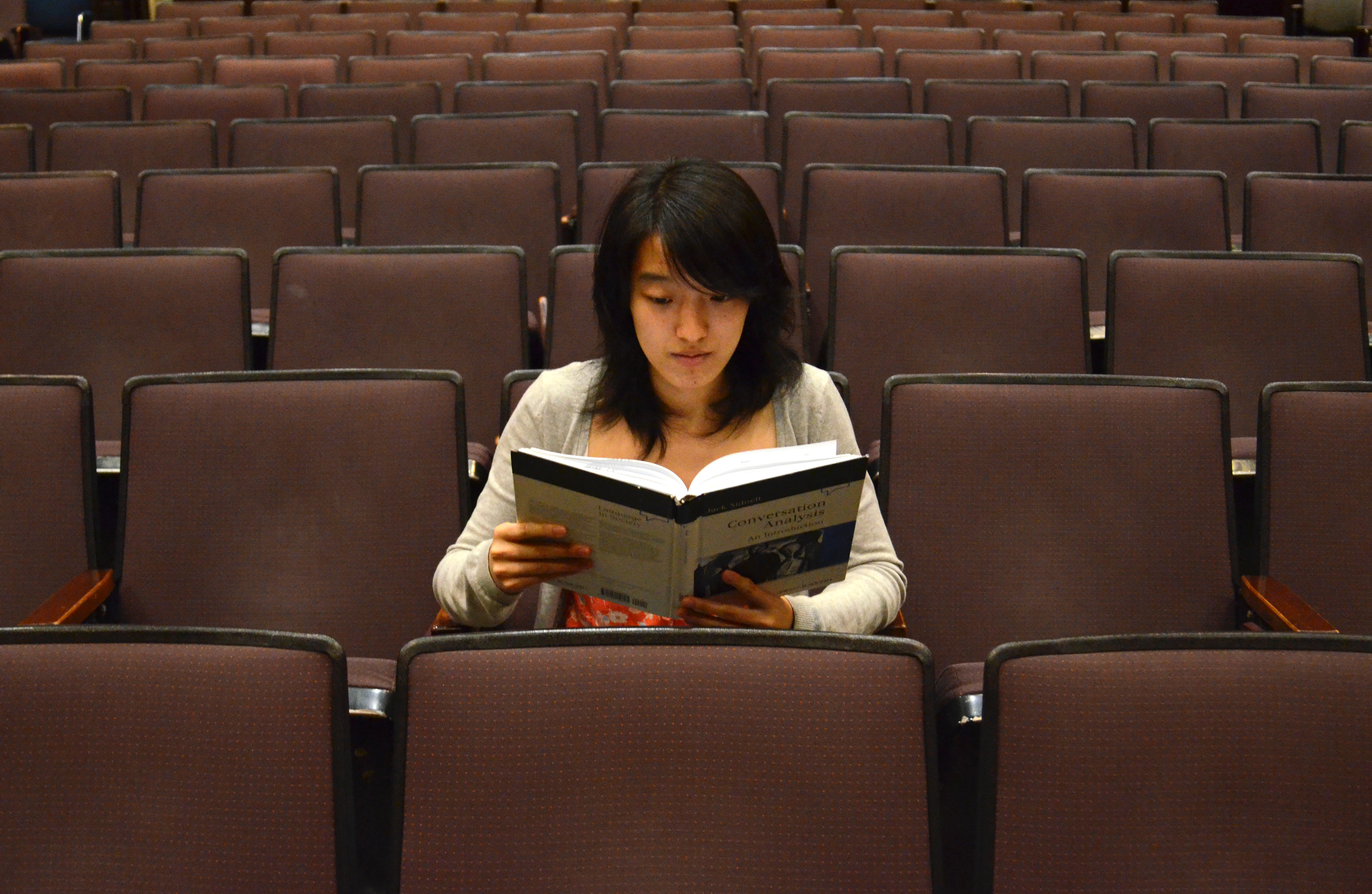Melissa Ma is the only student at UCLA pursuing the language, interaction and culture minor. And she’ll be the last.
The College of Letters and Science Faculty Executive Committee, a governing body for the faculty, voted unanimously last month to discontinue the minor, which is housed in the UCLA Department of Applied Linguistics.
The Undergraduate Council of the UCLA Academic Senate is expected to finalize the committee’s decision next week.
The language, interaction and culture minor, which was established in 1999, is interdisciplinary and includes anthropology, sociology and linguistics courses.
The applied linguistics department has experienced difficulties attracting students and offering courses for the minor since its inception, said Kyle McJunkin, director of curriculum coordination and operations.
With only four core faculty members in the department, creating a curriculum dependent on their teaching has proved difficult, McJunkin said.
“Somehow there were never enough students to justify a faculty offering a whole course that would be dedicated (to the minor), so it was kind of the chicken and the egg,” said Alessandro Duranti, dean of social sciences and a professor of anthropology.
Ma will be allowed to complete the minor because she was admitted before it was suspended, she said.
“When I first heard (about the decision) I was kind of sad,” said Ma, a fourth-year psychology student.
“I feel like I’m really fortunate to be able to finish it.”
The last person with the minor graduated in spring 2011, Ma said.
Ma became interested in how culture influences patterns of interaction after taking a few classes related to the field, including a class on the sociology of mass communications. Browsing through the course catalog later, she realized that the language, interaction and culture minor offered a curriculum that encompassed both anthropology and sociology.
“You can look at language and how people interact ““ see it from different perspectives and see it based on their cultural backgrounds,” Ma said.
“It’s like everything comes together.”
Ma speaks Cantonese, Mandarin and English, but she said she enjoys studying language relating to many different cultures.
“You just don’t look at (talking) itself, you take the body into consideration,” Ma said. “Languages come from different cultures too, so they influence how you carry yourself.”
When she declared the minor last year, Ma was told that the department was in the process of revamping the curriculum, she said.
Department emails alerted her about a lack of resources in the department of applied linguistics, but she said she did not realize the diminishing resources would lead to the closure of her minor.
Being the only student in the minor has its inconveniences, she added.
Ma has had to petition to replace unavailable core classes and work closely with the department staff to mold the minor, said Jessika Herrera, a student affairs officer for the department.
Still, Ma said she appreciates the freedom that comes with having to choose replacement courses.
“I feel kind of special to be the only one with it,” she said.
The faculty members of the Center for Language, Interaction and Culture ““ who first proposed the minor ““ requested ending it in hopes of improving their use of resources elsewhere, McJunkin said.
The decision to discontinue the minor met little controversy because of its lack of student enrollment, McJunkin said.
Although McJunkin said the minor’s termination indicates a problem with its curriculum and ability to attract public interest, its closing also reflects faculty attention to the needs of the student body, he added.
“(Faculty) are conscious of what makes a strong program and what doesn’t and when a program is no longer sustainable or represents what they think is important then they take the necessary steps to take it off the books,” McJunkin said. “Minors are not majors. Minors come up all the time.”
The minor was intended to be interdisciplinary and examine language from a cultural and an interactional point of view, Duranti said.
“That’s still something that has to happen in a different context,” he said.
Duranti said he acknowledges that problems with the minor needed to be addressed.
“We might not have done enough to advertise this in the right way to make it more attractive to students,” he said.
Despite her disappointment with the minor’s inability to draw the interest of her peers, Ma said she understands the department’s decision.
“I’m only one person,” she said.
